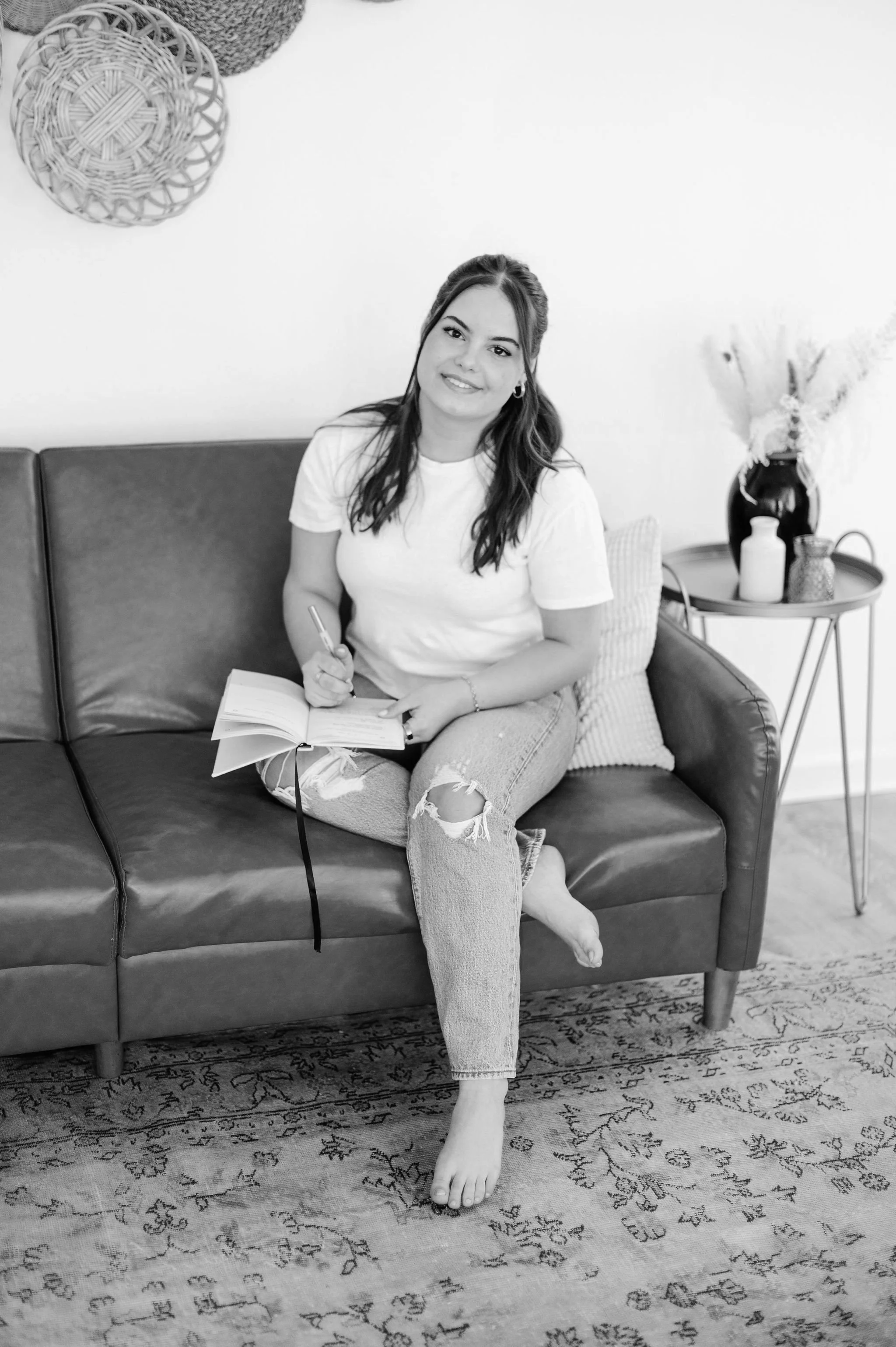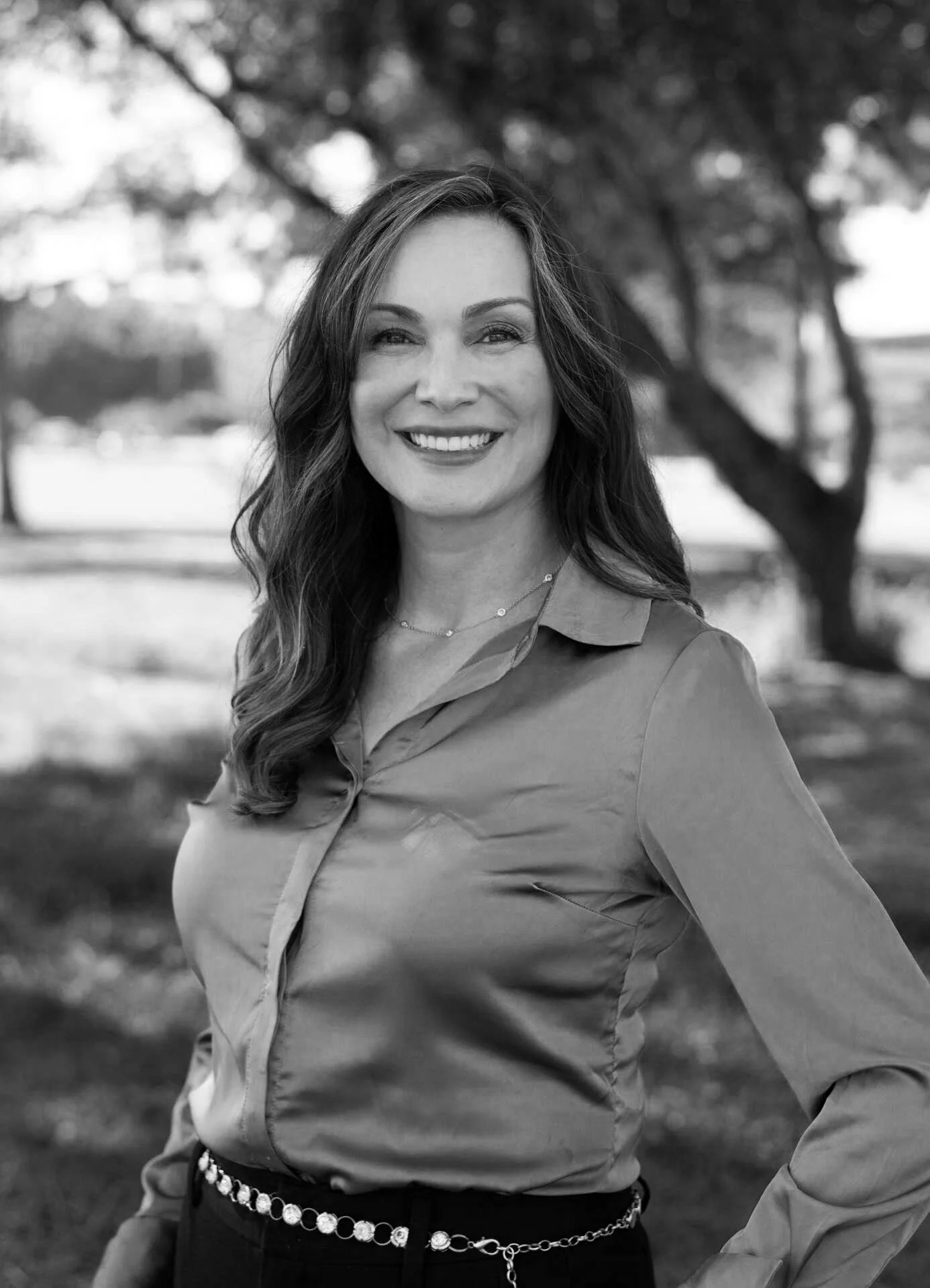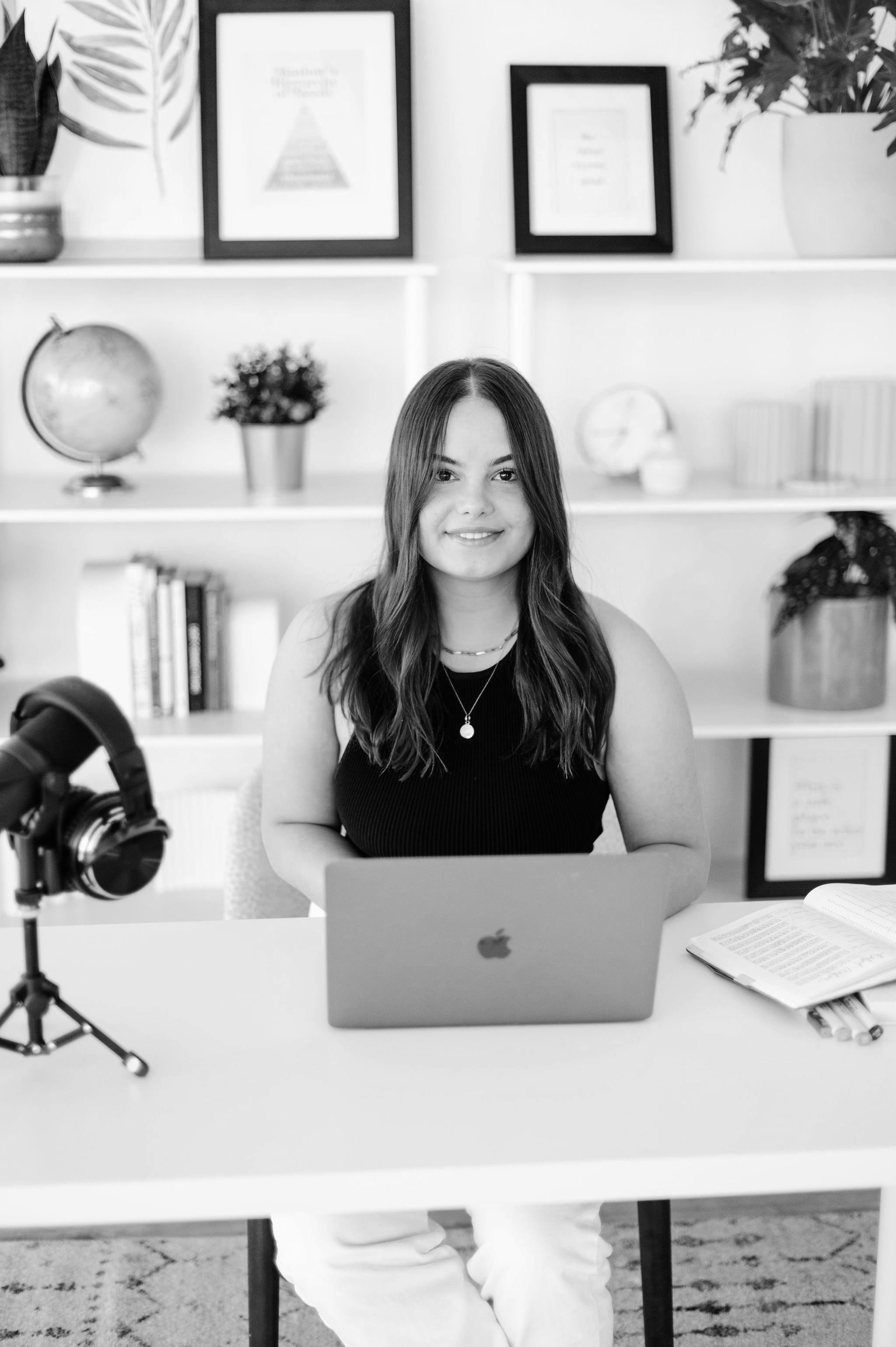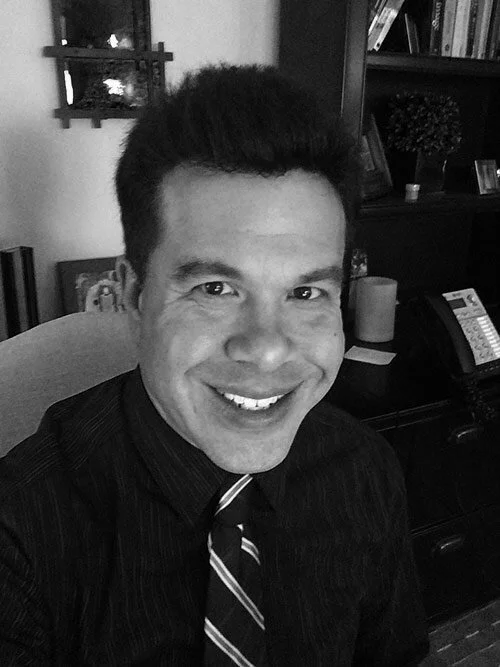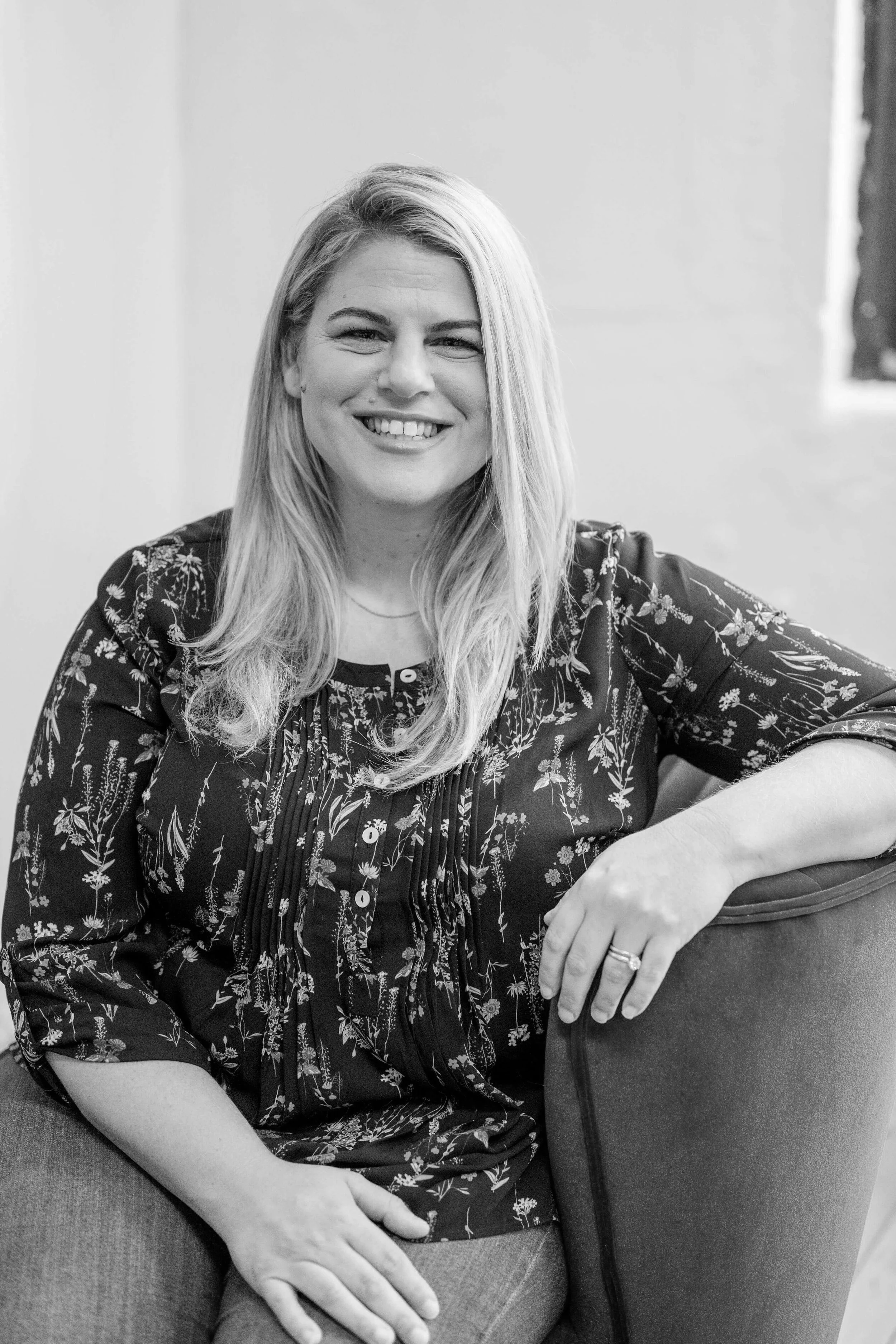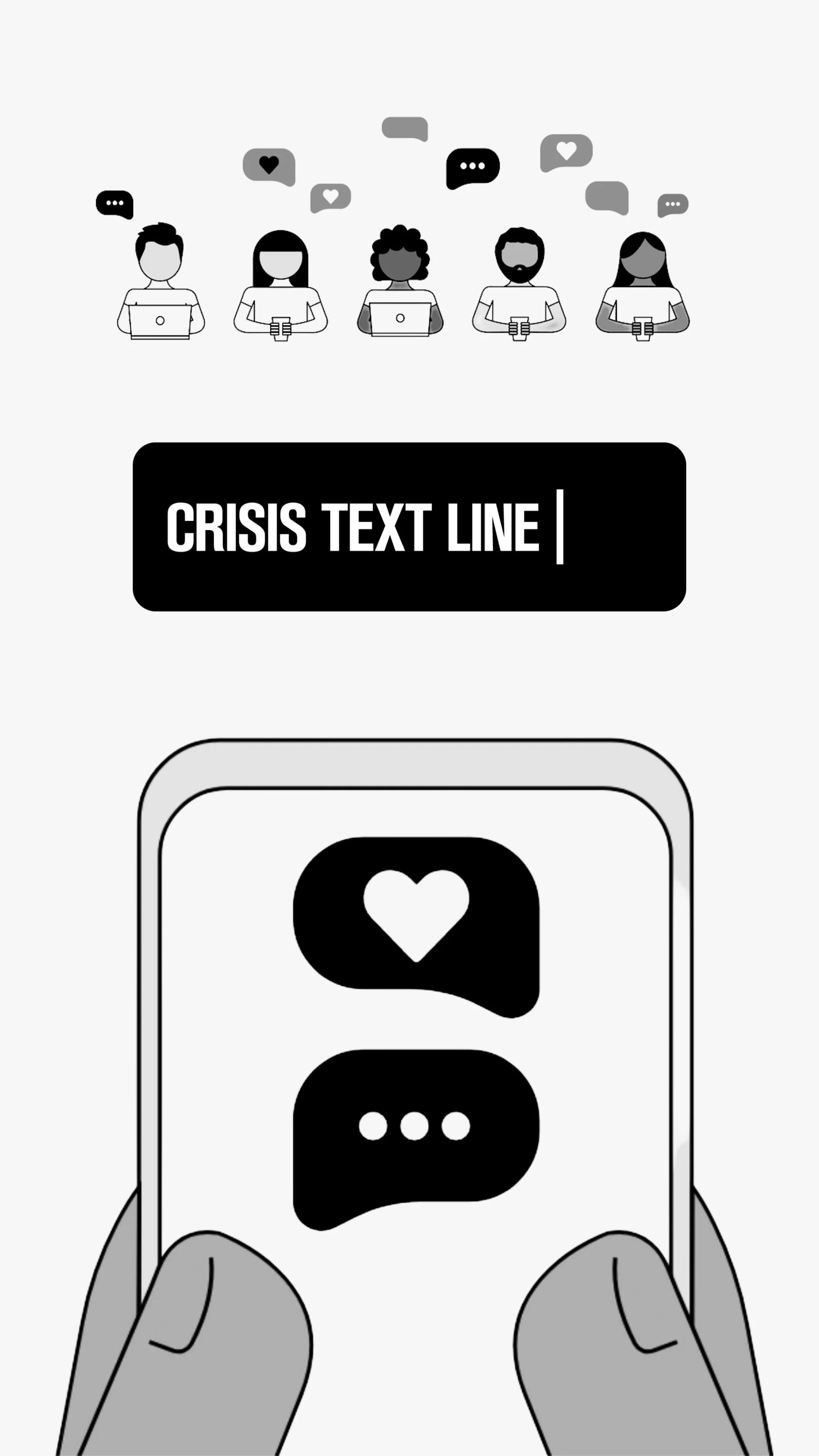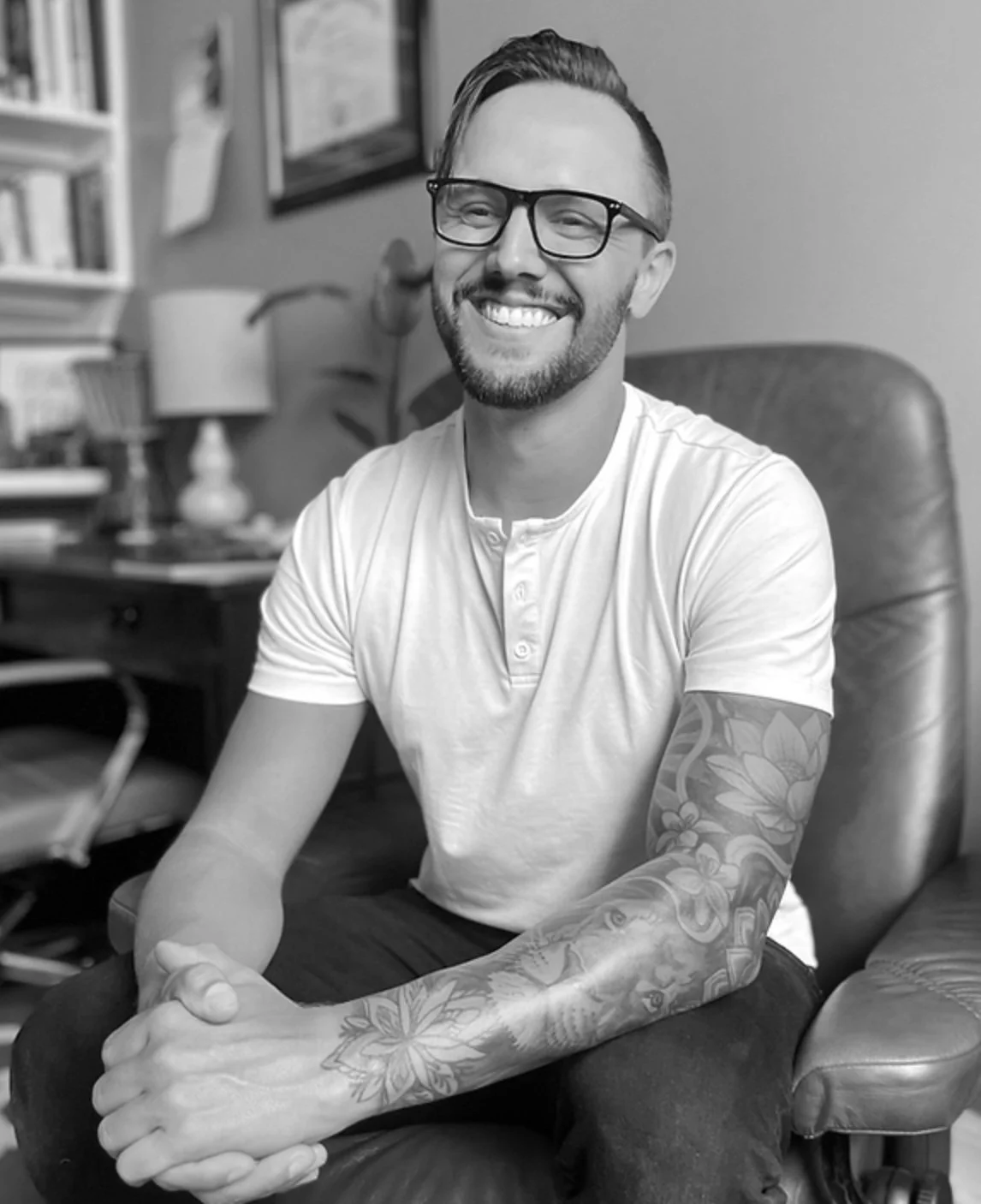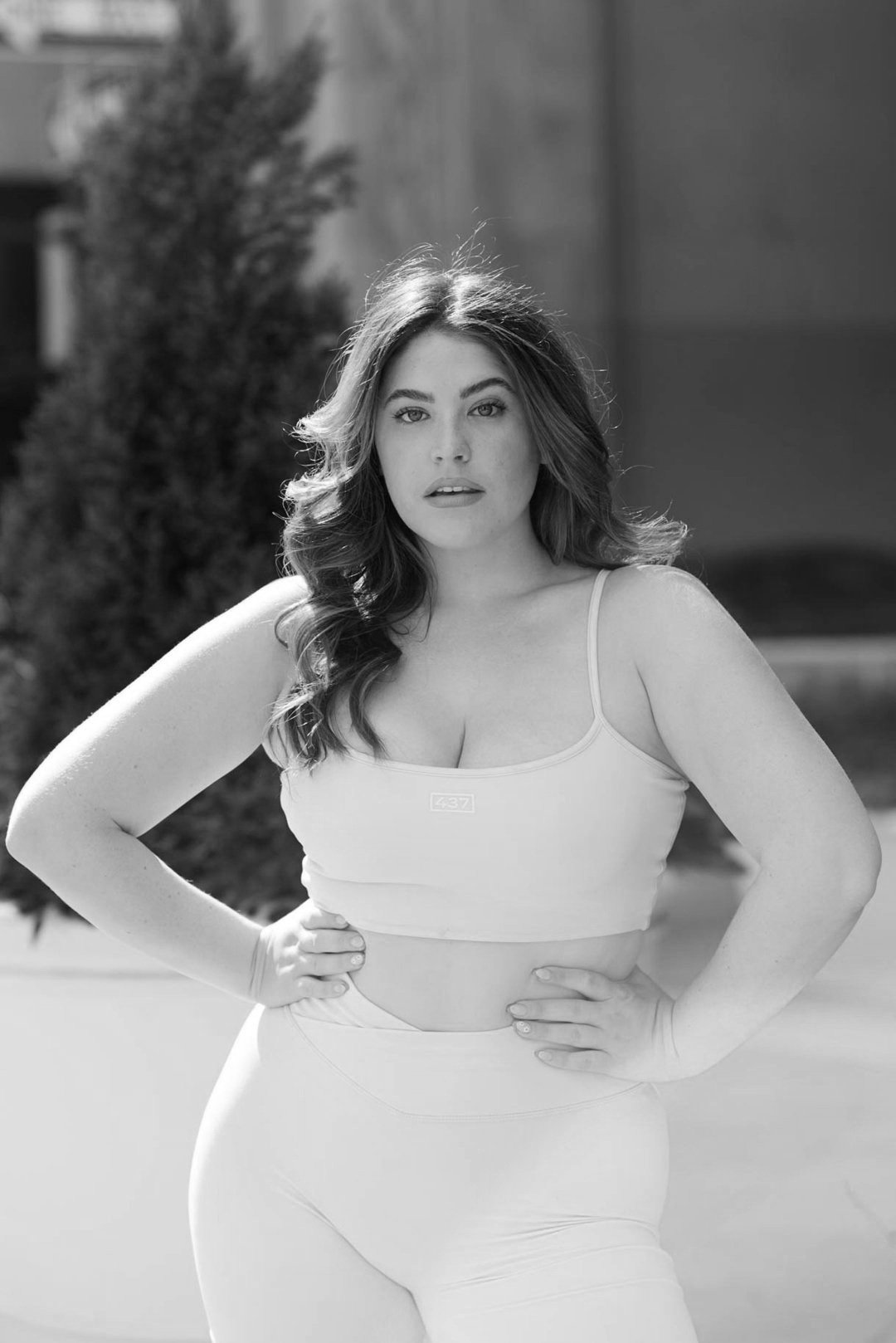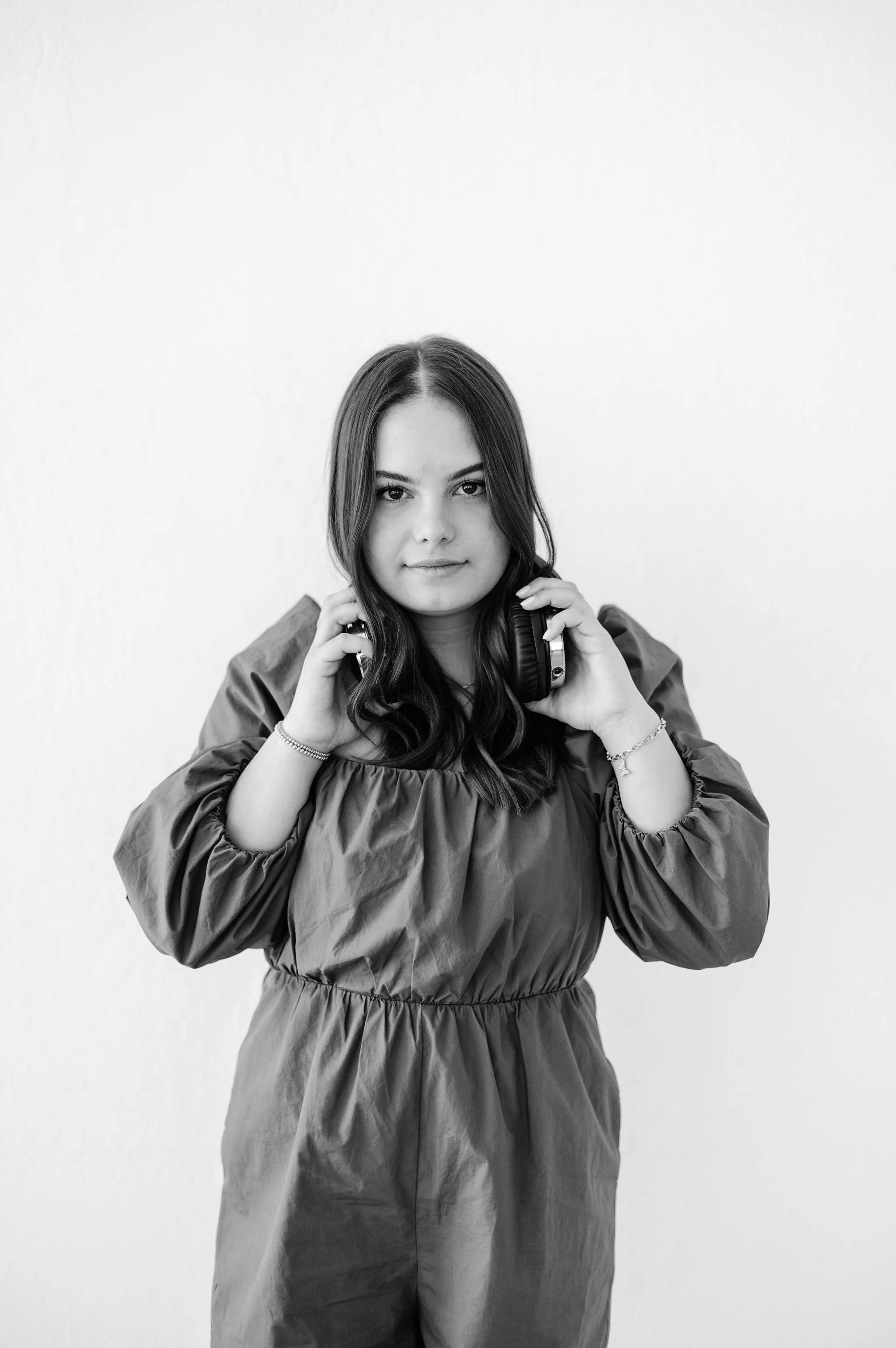181. "Is there something wrong with me?!!" - Responding to Reddit Mental Health Posts
listen to this episode:
Tune in and subscribe on your favorite platform: Apple Podcasts | Spotify | Stitcher | Google Play | Radio Public | PocketCasts | Overcast | Breaker | Anchor
In this week's solo episode, I react to mental health posts on Reddit! I give my most honest responses to mental health storytimes and share my best advice on a bunch of mental health questions. I respond to posts that cover topics such as:
+ Feeling hopeless
+ Being sad versus being depressed
+ Helping a friend with their mental health
+ Why Gen Z struggles with mental health
+ Losing motivation in school & other activities
+ Opening up about trauma & overcoming trust issues
+ so much more!
Mentioned In The Episode…
+ Send me your episode topics!
+ She Persisted Ep. 28 feat. Dr. Blaise Aguirre
+ She Persisted Ep. 81 feat. Dr. Aliza Pressman
SHOP GUEST RECOMMENDATIONS: https://amzn.to/3A69GOC
STARBUCKS GIFTCARD GIVEAWAY:
Want coffee on me?! Each month I'll be randomly choosing a winner to receive a Starbucks giftcard! To enter this giveaway, all you have to do is leave a review of the podcast on Spotify and/or Apple Podcasts and DM me on a screenshot of your review on Instagram. Win bonus entries by tagging the podcast on your Instagram story or TikTok! Good luck!
About She Persisted (formerly Nevertheless, She Persisted)
After a year and a half of intensive treatment for severe depression and anxiety, 18-year-old Sadie recounts her journey by interviewing family members, professionals, and fellow teens to offer self-improvement tips, DBT education, and personal experiences. She Persisted is the reminder that someone else has been there too and your inspiration to live your life worth living.
a note: this is an automated transcription so please ignore any accidental misspellings!
Sadie: Welcome to She Persisted. I'm your host, Sadie Sutton, a 19 year old from the Bay Area studying psychology at the University of Penn. She Persisted is the Teen Mental Health Podcast made for teenagers by a teen. In each episode, I'll bring you authentic, accessible, and relatable conversations about every aspect of mental wellness.
You can expect evidence-based, teen approved resources, coping skills, including lots of D B T insights and education in. Each piece of content you consume, she persisted, Offers you a safe space to feel validated and understood in your struggle, while encouraging you to take ownership of your journey and build your life worth living.
So let's dive in this week on She persisted.
When you feel lonely, when you feel hopeless, when you feel like you have nothing going for you, you create space for that. Rather than then going into this secondary emotional cycle of, I feel lonely, I shouldn't feel lonely, why am I as a person having all these shortcomings and feeling lonely? I'm horrible.
Do you kind of see that slight difference in how you speak to yourself? But it has a really, really big impact. And this was one of the game changers for me in recovery, was that we don't control our emotions. But we can control our secondary emotions. Hello, hello, and welcome to She Persisted. I'm so excited you're here today.
Happy March. That has flown by, my birthday is in two weeks. Every year, I get further and further away from being able to say I'm a teen podcaster. But I am so excited for this episode. It's a solo, it's a weekly, but I am reacting to Reddit threads and Reddit posts about mental health and people looking for advice and support and all of the things.
For the next time that I do this episode, if you guys want to write in, there's a link on my website where you can anonymously fill out a Google form and link. put your story, your situation. I also try and put up question boxes on Instagram, but you can always, like, DM, email, all the things, and let me know if you want it featured in a podcast, and I'll always keep it anonymous.
But, with that being said, I'm excited to dive in. If you're watching this on YouTube, I just got a spray tan, and this is not my best look, but we gotta do what we gotta do. The episode has to come out. Also, hack related to that, my friend Alice, if you're listening, hi Alice, found that this spray tan place called Sugared and Bronzed, they have a bunch of locations, they let you do super discounted spray tans with a trainee.
So the first time we went it was 5. Normally they charge like 40 or 50. 50 or even 60. This time it was 15, so it was, like, a little bit more expensive, but still compared to the full price, like, so much better. And I have a wedding that I'm going to this weekend, and I normally don't get spray tans, but she was getting one, and I was really excited.
It's such a fun activity, but really cheap. So, if you have one of those in your area, check it out for like the trainee prices because they do a great job and it's so great. Oh, and by the way, if you guys want to read these posts or kind of relate, see what people are going through or leave something on this thread, it's r slash mental health on Reddit.
Okay, so the first post was put up seven days ago. They said they need support. It is titled, Please Tell Me It's Going to be Okay. 20 years old. I have dealt with depression and anxiety for most of my life. These feelings have come and gone throughout the years with different levels of severity every time.
I'm usually okay with helping myself, but lately I feel so helpless. I feel so alone when I know that I have no good reason to. I have close friends that care about me, I have family that loves me, and looking at it, my life is going decently well right now. Now, I'm even starting a new job tomorrow. I should be happy.
I shouldn't feel this alone. The worst part of it, though, is that I feel this crippling sense everything is wrong. Like something bad is going to happen and I just don't know what. All of these feelings together have rendered me helpless. I need to know that it's going to be okay. I just need someone, anyone, to tell me it's going to be okay.
Please. Here's the first impression I got when reading your note. You are talking about what you're going through, and even the way you're explaining it to other people, you're invalidating yourself with how you're talking. You're saying, I should be happy. I shouldn't feel this alone. I have no good reason to feel alone.
When I read that, first of all, it reminds me of exactly how I used to talk to myself and exactly how I used to feel. when I was depressed. Same exact mentality and position. It was like, I am so helpless. I didn't have any faith in my own ability to get myself out of the struggle. I didn't think I was strong enough.
I didn't think I had the skills. I didn't even really want to because I was so depressed. And on top of that, I got into the same mental trap where you have such a low opinion of yourself. and your self esteem is so low that you don't even think you deserve the pain that you're in. Which, when you think about that, if you were talking to anyone else other than yourself, and they're like, I hate myself so much that I don't even believe that I am experiencing the pain I'm experiencing.
I must be overreacting. I must be too dramatic. Like, I shouldn't be feeling this way when they're just struggling. like, that is not true. That's not the case. We can't control the pain that we're experiencing. We can't control our emotions. That has no impact on your worth or worthiness as a person. And so, I think one thing that would be really helpful is applying that similar grace to yourself.
And how you're going to do that is by doing a lot of radical acceptance around the idea that all emotions are valid, you are worthy as a person, and applying judgments and secondary emotions like shame to what you're experiencing is only going to exacerbate the problem. Let me explain that a little bit.
So, say you're feeling lonely and you're feeling sad, which is a very natural thing to feel. You can think about it from a logical perspective and be like, evolutionarily, if we weren't in a community and in a tribe, we didn't survive. And so we have this super intense innate desire to be connected and supported and in relationships.
We don't control that. We don't decide that even if we're like, I'm an introvert. I wish I didn't have to see anyone ever. Like, innately, we have that need to be in relationships and be connected. So you're feeling lonely. Natural, okay, makes sense from an evolutionary perspective, and also valid. Any emotion, regardless of what it is, whether it's shame or anger or guilt or happiness or sadness, loneliness, anything and everything that we feel is valid.
It's okay. We make space for it. We appreciate it. We can't control it. It's valid. It's not always justified, and this is, I think, where people get confused, is they're like, well, my kid is acting out this way, or like, this is such an insane reaction, given the circumstance, or no one else is having the same reaction.
You might not be having a justified reaction, but it is. is valid, and we create space for that. So it's not an excuse for how we treat others. It's not an excuse for how we act or how we cope with emotions. That's where the justification comes in, but those emotions are valid. And so when you feel lonely, when you feel hopeless, when you feel like you have nothing going for you, that's valid, and that's okay, and you create space for that.
Rather than then going into this secondary emotional cycle of, I feel lonely, I shouldn't feel lonely. Why am I, as a person, having all these shortcomings and feeling lonely? I'm horrible. Or I feel helpless. No one else is feeling helpless. Why do I feel helpless? Like, I'm not only helpless, but I'm the worst.
So do you kind of see that slight difference in how you speak to yourself? But it has a really, really big impact. And changers for me in recovery was that we don't control our emotions. But we can control our secondary emotions. So we experience something, we react to it, and we have that choice and that decision of whether or not we attach judgments, or we shame ourselves, or we avoid it, or we get angry about how we're feeling.
And if we can create space and really, really, really validate that initial feeling, It becomes so much less overwhelming, and you save yourself all the stress and suffering that comes from judging and avoiding and all of those things. So that's my first impression thought on reading that. I want to give you a bit of other advice as well.
First of all, I should have said this before I even started that whole thing about secondary emotions, but that stuck out to me. It is going to be okay. And this was one of my biggest mantras in treatment. And this was actually a quote that was said on air on the podcast with Dr. Blaise Aguirre. He is the medical director at 3 East McLean Hospital.
Incredible program. Incredible hospital. Best of the best. DBT. He is amazing. We love Blaise. But, he said, Life is impermanent. And that impermanence will be on your side. And when you say, please tell me it's going to be okay. When I think about my own life and experiencing tough times, the way that I talk to myself is I say, it has to be okay.
Because the laws of nature and physics and everything and how the world works, this cannot last forever. Nothing lasts forever, especially our emotions and our thoughts and our current feelings and environment. And so this helplessness and loneliness and disconnection and shame and anger that you're experiencing physically and mentally cannot last forever.
And so I promise you, just from an objective, like 100 percent factual perspective, it is going to be okay. And you won't feel this sad and overwhelmed and distressed forever. It is possible that at some point in the future, you might feel worse, but you won't feel this way forever. And knowing that it comes in waves.
and that you can ride those waves has brought me a lot of peace and clarity and a little bit of more willingness to, like, sit with those emotions knowing that they will go away. Because I think that's one of the most challenging parts of mental health challenges, and depression especially, is when you don't know when it's going to end.
And until you do that emotion education, that This physically, mentally, emotionally cannot last forever and this will lift. It's really hard to get out of that mental trap and that mental cycle that like, this is how I feel and it's not going to change and I'm just stuck with this for the rest of my life.
So remember that from an objective, factual perspective, this can and will and has to change and it will be okay. And I really just want to emphasize again, we talked about like the way you're speaking to yourself and the secondary emotions that come up and judging the way you're feeling, which can be really ineffective.
The idea that you have no good reason to feel alone or you shouldn't feel hopeless or there's nothing objectively going bad in our life. We know that our environment doesn't correlate with what we're experiencing. Two people can be in the exact same relationship or environment or setting, and one could be really happy and supported and joyful and the other one could be so isolated and alone and helpless.
So just because the objective measures there or just because these things around you seem like they can and should make you happy doesn't mean that they will. And there's a lot of things that you can do from a mental health perspective to increase the chance and likelihood that they will boost your mood, but I think also doing that education around, like, There is nothing objectively that guarantees that we're going to feel happy from going through that thing, whether it's a relationship that we're in or, like you said, a new job opportunity or having a community around you.
None of that guarantees our happiness. And so understanding that we can't attach shoulds to our environment and our mood, I think also, again, decreases that judgment and shame around what you're experiencing. And the last thing that I want to touch on for this question is the helplessness, and you said that you've helped yourself in the past, but lately you feel so helpless and don't feel like you can pull yourself out of this.
Here's what I'm going to say. We know from a psychology perspective that the only necessary variable when it comes to happiness, and we talk about necessary and sufficient variables for happiness, and Basically, some variables, you need all of them to be present in order for the outcome to happen. Some of them, you might just need some.
And with well being and happiness, you need relationships in the picture and in the equation to have positive well being and positive mental health. Objectively, that is the case. We need support systems. We need community. Again, there's an evolutionary part of that, but it just isn't non negotiable. We need help and we need support.
And so, my challenge that I think and I don't want to say, like, I know this will help you, but there is a great chance that it will help boost your mood, is to really embrace that fact that well being and relationships go hand in hand. And you have a new job that you're starting, you have family that support you, you have friends.
And I want you to lean on them. And that doesn't necessarily mean going and being like, I am super depressed and this is what I'm experiencing exactly this week. But that means setting up non negotiable times that you are seeing your friends and scheduling those out and being like, I am going to see my family three nights a week for dinner, and I'm going to meet with my friends twice a week to go and do this activity that we like together, and I'm starting this new job.
I will get four people's numbers and text them after work just to introduce myself and say hi. And maybe that's a lot. Start small. Do what's reasonable. But, you are going to structure those relationship interactions into your life rather than just expecting them to organically occur. And you are going to practice working that muscle vulnerability.
Just like anything else in life, we have to practice being vulnerable. It's hard. It's uncomfortable. It's, well, some people like being vulnerable, but I find it's like, ooh, people are knowing things and this is uncomfortable and tough. So practice that. Start small. Maybe you sit down with a parent or a friend and you say, like, I'm having a really bad month.
Keep it vague. Keep it simple. Keep it service level. But let them into what you're experiencing. And if they are good friends and supportive family members, they will, of course, express concern and be like, I'm so sorry you're experiencing that. How can I help? How can I be a good support system? You can kind of ask yourself, like, what would be helpful?
Maybe you just say, it's just really nice to have someone to talk to and just to be able to open up about this. I haven't been talking about it so far, or being like, it's really just great that you took the time to spend time with me this week. And like, if we could keep doing this every week, that would be really incredible and amazing.
I just value your friendship or spending time with you, whatever it is. So, practice working that muscle of vulnerability. Start small with being like, I'm so stressed today, or it's been a rough week, or honestly, I'm not feeling as good as I normally do. Like, I'm kind of low mood, and I'm not really sure what's happening.
And build that muscle, get that support system, and of course, super helpful, especially if you're saying that you've dealt with depression and anxiety for most of your life, if it's a resource that's accessible and possible, work with a therapist. They're going to have so many tangible tips and tricks that you can implement.
They're going to be able to help you unravel and tease apart all these things that are contributing or maintaining the depression and anxiety, and Also help you navigate these relationship elements. So if that's possible, find a therapist, meet with a therapist, go to psychology today. They have like lists of all the clinicians in your area.
You could also reach out to your insurance provider and say like, which in network providers do you have that are available? Go to your doctor, ask them for referrals. So many places to find a referral or options or a list of therapists or teen counseling, which we talked about, but you're 20. We're giving you the adult options.
That's my advice for the first one. We're going to move on to the next one, but I really hope that helps. And again, you started with, please tell me it's going to be okay. I promise. And I know it's going to be okay. I am living proof. So many other people are living proof. And just objectively, factually, it will not feel this way forever.
The next question is, Am I depressed or just sad? Lately, I've been feeling quite sad recently, and I'm thinking of going to therapy, but I don't want to stress my parents. However, I'm wondering if what I'm feeling is depression or just sadness. Some days I feel really sad and start crying, and some days I feel empty, but some days I feel normal without really any sad feelings.
I rarely get angry, but I heard getting angry is usually a trait. on being depressed. I hope I don't sound like an attention seeker. I'm genuinely trying to find out. This is such a great question and a very common experience. I think a lot of us wonder is what we're experiencing like the normal range of emotions or is this like abnormal and I need more support?
I would say, first and foremost, that anyone and everyone can benefit from going to therapy. Who couldn't benefit from understanding themselves better? being more effective in your relationships, knowing how to set yourself up for success, all of those things just have a net positive on your life and are skills that are important to build to live a good life.
So first of all, if you're wondering, like, do I need to go to therapy? Is it bad enough that it requires therapy? I think having that baseline understanding that anyone can benefit from therapy regardless of their mental health status. And it can be helpful to build those skills and set yourself up for success and keep yourself on the right track, and almost like taking that mental health element out of it.
I think this is really common where people say, it's not bad enough yet, or I'm not at the point that X, Y, and Z is at, or people in therapy only go when they get to this point in their emotional experience. And it's true that some types of mental health interventions are only applied when you reach a certain clinical level.
Like if you went into therapy and were like, I feel sad once a month they're not going to be like, let's do transcranial magnetic stimulation and ketamine infusions. Like, no. Or you go and you're like, you know, sometimes I get anxiety. They're not going to be like, residential. That's our next step. And so, yes, it is true that at some point you say like, oh, you, you don't need that level of support or that level of intervention.
However, basic talk therapy, working that muscle and advocating for yourself and improving your mental health skills. Anyone can benefit regardless of their severity from a clinical perspective. I go back to this idea that I learned in Abnormal Psychology. We talked about this for the first, like, week or two of class.
And it's the idea of what is normal and what is abnormal. And obviously we're in Abnormal Psychology, so we're talking about the abnormal in treatments and research and what we know about these different illnesses. But it's a really important question, and when you look at mental health challenges, or actually, I should say mental illnesses, in the Diagnostic and Statistical Manual, which is how they diagnose mental illnesses and the criteria they use, one of the biggest and most important questions that's considered is, Is this causing you distress and is it impairing your ability to function?
So to give you an example, if my job was coding and I was in front of a computer for 12 hours a day, but I loved it, I found it so mentally challenging, I was constantly in flow state, I loved connecting with my peers at work and like working on these coding projects and it gives me this great sense of fulfillment and blah, blah, blah, blah, blah.
You wouldn't say that your screen time is causing you distress or impairment, but if you take someone else whose job is not at all related to technology and isn't spending their time on a screen to, like, further and better themselves from a career perspective or pursue this thing that's interesting to them all day on a screen, might be causing distress and impairing their functioning.
And so, we think about mental health from that perspective as well. And, when it's time to get help, is when it's causing you distress, and when it's impairing your ability to function. And there's a spectrum there. Like, there's the potential that, like, you are not functioning at this point anymore. And I definitely had that experience, where I wasn't going to class, and I had to, like, uproot my whole life to get treatment and support.
And my whole life was just distressed about my mental health. And so there's a spectrum. But I think any time you're like, wow, I don't know how to deal with this or this is kind of stressful or out of my wheelhouse and I don't know what to do here, that level of distress is when you're like, okay, I got to build my skill set and maybe you can do that in therapy.
And the, um, Impairing your ability to function is the same thing. Maybe it's like, wow, I wasn't able to take a test and now I'm going to have to do all this work to make it up because I had really extreme test anxiety and I just, my mind went blank and I couldn't finish the test at all. This has been building over time and now it's really impacting my academics.
Getting support and therapeutic support in that situation would be helpful and beneficial. So if you're thinking about therapy, ask yourself that question. Am I feeling Distressed about this experience and is this impairing my life in How I'm normally and typically functioning and so yeah reading your thing any teen I'm like why not like if your parents are supportive of it go to therapy and if you're like I don't want to stress them out frame it as you know, like I'm feeling And I'm not at the point where it's like completely derailing my life, but I would love to build my skill set here because I'm definitely not feeling as great as I could.
So that's my question there, and I think reframing that question around therapy and how you think about therapy is really helpful. And then the last thing that I'll touch on for this one is, you said, I rarely get angry, but I heard getting angry is a usual trait of being depressed. I'd say this is a myth.
People can be more. irritated and irritable when they are depressed, and some people do lash out. And this is the idea of internalizing versus externalizing. So, like, internalizing is low self esteem. You take it on yourself. You speak really negatively. Externalizing is maybe if you have low self esteem and are maybe engaging in, like, disordered eating or something like that.
So, anger might be more of an externalized way of expressing depression. And maybe, like, chronic fatigue and tiredness and being in bed all day. Obviously, that's a behavior, but maybe those thoughts are more internalized. So, everyone presents differently. Again, going back to the DSM, the main function is to bill insurance, do more research, and get more clarity on what treatments work for what things.
And so, there's a spectrum. Things can present in different ways, and just because you're like, oh, like, I haven't had this one symptom, so I must not feel this way, I would say is a bit of a, a misconception. This one is tagged, need support, I need help for a friend. I need help for a friend who's depressed.
She doesn't see any worth in trying to improve her life, and she's tried to seek professional help before, but she couldn't as it is too expensive. I've been trying to reassure her and be supportive, but is there any way I can seek professional help for her so that she can find solutions? I don't know any other Reddit channels for this, so if anyone has any advice or any place I can go, please let me know.
I talk to my friends about this a lot, and this is a really challenging and interesting situation. But we got to go back to the oxygen mask principle, which we talked about in the last solo episode, which is that when you're on a plane and they tell you if the plane goes down and the oxygen mask comes down, put your own on before you put on someone else's, especially children.
Because if you put your child's on and then you pass out, then the child has left there helpless and you also are helpless and without oxygen. But if you put on yours first, Even if the child passes out, you can still put on their oxygen mask, help them, support them, and help them navigate through the situation.
We are useless to others unless we are taking care of our own mental health and well being first. We can't support them as well as we have the capacity to do, and it's also a deficit to ourselves to put others needs and priorities and well being above our own. So, here's my advice to you. This is mentally where I'm currently at with this.
It might change in a couple of years, and maybe this is, like, a hot take too judgmental. But, I would do a little cost benefit analysis, and I would say, my friend is really depressed, I've tried to get them to make improvements, they don't have access to professional support due to financial barriers, and they're not really exhibiting any willingness.
And you're actually asking yourself, Can I get professional help for them? And we have to think about a couple of things in this situation. The first thing is to ask yourself, what can you really do? It's a friend. If this was your child, if this was a parent that you had more of a responsibility for their well being, if you were like, In a relationship or a partner, like a long term partner, you might have more power and more ability to sway them in the situation.
However, I think most friends, especially as a teen and as a young adult, you're not going to have much power and sway over their mental health and whether or not they choose to get treatment. And this sucks, and it's really hard, and you just have to remind yourself and remember. You can only help someone as much as they want to help themselves.
You could want the world for them. You could be paying for their therapy. You could be driving them to their therapy sessions. But if they sit in there silent and run out the clock because they are angry and not motivated and not willing to make any differences, you, you can't make a net positive impact.
You can't hold their hand and force them to do the work and get better and, and all of the things. And so, This is where it kind of differs between like a parent or a close family member or a long term partner versus a friend. Like my parents when I was 13 years old were able to advocate and put me in those positions where I didn't want to be there.
I didn't want to be in therapy. I didn't want to get treatment and yet they were like we are in charge of your well being as your parents and we know this is what's best and this is the step we're taking and eventually I was put in that position where it was like You got to decide, do you want this for yourself?
Do you want to keep going down this path? Or do you, do you want to get better and do you want to choose that life worth living? But they have to choose that for themselves because if they don't, maybe they'll go through the motions. Maybe they'll make a little progress, but it won't stick. And it won't be long lasting, and that's kind of the difference between intrinsic and extrinsic motivation.
The things that last the longest in life and are the most consistent are the things that we believe in and that we want to do and that we're actually invested in. And that's true for mental health as well. So whenever there's a situation where it's like a friend is struggling, you see that they could be doing better than they are.
You just have to remind yourself you can only help someone as much as they can help themselves. And as a teen, you have to weigh your own mental health and well being with how much of an impact you can really have. And if you are so distressed and so overwhelmed and like, this person is struggling and they're only confiding in me and I know they should be in therapy but their parents don't want to get them therapy or they can't get therapy and like I feel so helpless, what outcome is that going to get you?
Like, even in a best case scenario, it all hinges on their willingness to get better and them wanting to accept help. And so, I think you have to be really honest with yourself and be like, I love and care about this person so much. I want to get them support and how much power do I really have in this relationship?
You can't go to therapy for them, unfortunately. Is it worth my own well being? Like, is it truly worth being so distressed and overwhelmed and upset and angry and hopeless over someone else's well being? And that doesn't mean you don't care about them or don't love them or don't still show up in your life, but like, are you so invested that every time they have a bad day, you're also having a bad day as well?
Or every time they don't go to therapy, you're like, so dejected and hopeless and all the things. And then lastly, you ask yourself, How can I be a positive support and resource in this person's life, regardless of how they're doing mentally? And that means having a healthy relationship that they can show up to.
That means doing activities together that bring you guys both joy and positivity and improve your well being. It means responding effectively when they're vulnerable and talk to you. It means setting boundaries that allow you guys to have a healthy relationship and for you to continue to show up in that relationship.
And Again, all the self care and radical acceptance and grace around you can only help someone who wants to help themselves. And if this eventually gets to the point where the friend is like, I am going to therapy and I'm so motivated and I really want to get support and I just don't know what I'm navigating.
Can you help me? Blah, blah, blah. Then again, you can see like what the boundaries are and support them in that and be like, Yeah, like, let me know how it goes. Talk to me after the session or whatever it makes sense in the context of your relationship. But again, see all hinges on. the person's ability to get them help.
And as a friend, I don't necessarily think most of the time you are in the position where you have the power to make that change from an environmental perspective. Okay, next one. I'm excited for this one. This one is under question. Why is our generation so messed up? Serious wonderment. I'm 24, born in the year 2000.
From what I remember of the pre 2014 ish, is that it was simple. Traditional, at least in my country, I look at the older generation and they seem to have a very firm grasp on reality. What life is, what should or should not happen, and even though I disagree with like 70 percent of what they believe in, they seem content.
When I hear them speaking about their youth, It's mostly done with fondness and just very simple. I know that as time goes by all you remember is the good things and time heals pain and gives you perspective. But they genuinely seem content in their interpretation of life. Anyways, I just want to know why our generation is so depressed, damaged, traumatized, lost.
Why does it feel like we don't know or have the tools to function like normal humans? Why are we so emotionally fragile? This is a really important question and I think one that a lot of older generations have and maybe don't express so eloquently. I Teens are so sensitive. Gen Z sucks. Blah, blah, blah, blah, blah.
So here is my thoughts on this. I think we first have to think about what you're talking about, which is the generation gap and the thought that when you get older, you quote unquote only remember good things. I think one thing to consider here is the biology, which is that younger individuals especially teens and young adults, which is Gen Z, are biologically more emotional and less rational.
So, from a biology perspective, we're already not doing as well as older generations. The next piece of the puzzle is when you're looking at someone who's like 30, 50 years into their life and has been living independently forever and is pursuing a career that they've chosen and they've built their own support system and They have all this autonomy.
Us as Gen Z are very young and new to being independent and living alone, and maybe we're even still in high school. And so we haven't had that two decades to be able to establish our well balanced and effective and amazing happy lives independently. And so we don't have that stability in our resources and our support system, so things are going to be less stable, more emotional, and we're going to have more ups and downs.
The next thing that also we have to talk about is that we are exposed to more information than any generation prior to us, and this is not just the news and everything that we're dealing with on a day to day basis all over the world and us being, like, vastly and meticulously tuned in to all of these tragedies.
But also from a relational context, and we keep hammering back into this, but knowing when our friends are hanging out without us or being able to talk to our friends 24 hours a day via text and having all these conversations that maybe you wouldn't have in person that cause distress or frustration or relational rifts or whatever it is.
And then another thing that I think adds to this picture is I think that we as a generation, and I love this about us, is that we are more vulnerable than anyone ever has been before us. We are really, really, really willing to talk about our mental health. And I think that's a really amazing and beautiful thing because we make people feel less alone.
We're normalizing these experiences. And so I think that's another element is that we are hearing people talk about mental health challenges and distress and depression and anxiety and all these things more than we ever had before. And so, of course, it feels like a huge departure. Basically, I think we're dealing with different challenges.
We don't yet have our toolkits established to be able to navigate them. We just are, by nature, more emotional and more vulnerable and less stable. And I think all of that adds to this general perception and maybe even reality that we are. more emotional, and we are struggling more than other generations have.
But there's also a lot of positive with that. There is more access to treatment than there ever has been before. There are more therapists, and more mental health clinicians, and more treatment programs, and more in school resources, and more people on social media talking about their mental health resources than they ever have before.
And so yes, we are seeing an increase in struggle, but we're also seeing an increase in the conversation about that and the resources that are accessible. And so we have to look at that whole picture and all the positive that is happening as well. So the TLDR on this one, even though it's obviously we have a youth mental health crisis and are struggling to navigate it, is one, I think we are more vulnerable about our experiences than any other generation.
We're dealing with new challenges that we don't yet have the skill set to navigate. We by nature are more emotional and less stable. And there's also a lot of positive changes happening in the mental health space compared to other generations. This question is titled Thoughts. I've been missing school a lot lately.
I can't tell if I'm tired, lazy, or something else. I'm in a sport, I've loved it for years, but sadly this season I haven't had a sense of accomplishment. I think that may be because I haven't really used my skills too much, my days have felt the exact same, and I've found myself on autopilot. I have zero motivation to do my work, I have stuff I should be doing right now, but I'm not.
I've been really tired lately, but that might just be the result of school plus practice after school plus work on weekends. When I'm at school, I don't really eat anything. I'll get lunch and only eat maybe two or three bites. I was supposed to go to school today, but I just didn't feel like getting up and fell back asleep.
I've lost all motivation to do anything. It's almost 5 p. m. and I'm still in my bed. I can't tell if it's just being lazy at this point. I feel there's something more that I'm not mentioning, but it's not coming to me. I don't know if I'm just being dramatic or if there's actually something wrong with me, but to be dramatic and to just want attention, I'd have to actually be telling people about it.
But I'm not, and it's all in my head. But I can't shake the idea that it's just the typical emo teenager phase, but it's been a year and a half since I started getting kind of bad, especially with school. That feels like a long phase. I'm genuinely conflicted, I want to say that it's nothing and that I'm being dramatic, but what's the point of being dramatic if it's all internal and kept to myself?
I don't know. Honestly, I could just be overthinking it all. I feel safer asking Reddit because none of you know me, so what are your thoughts, opinions, and whatever? I think we have to go back to this question of is it causing you distress and is it impairing your ability to function? And based on what you're describing, I would say yes.
And I think if you go to your pediatrician and they give you the depression questionnaire, obviously I cannot diagnose you, I'm not a clinician, but it sounds like there's less interest in things you used to enjoy. You're sleeping more, your appetites change, and these are a lot of things that go with mental health challenges, specifically depression.
And so, You mentioned that you very much are not talking to other individuals about that. And I think that's the first step. It's the hardest part of your mental health journey, but it is the most important, which is asking for help. Whether that's a parent, a family friend, a coach, a teacher, a school counselor, a doctor, going to a trusted adult is so important.
to be able to get you those resources that maybe you don't know about or you aren't able to advocate for on your own. And so, that will be the first step. And I go back to this thing that Dr. Eliza Pressman said on the podcast, probably like two years ago at this point, and she said, I'm less worried about the kids that are in mental health treatment than the kids that aren't that fly under the radar.
And so, again, we talk about therapy being beneficial for anyone and everyone, and I think that this is one of those benefits of being looped into the mental health care system is that you have people keeping an eye on your well being and knowing what red flags to look out for and being aware of what might not be great for your mental health from a behavioral and cognitive and emotional perspective.
So, from reading this, I would say, like, there's definitely some things that seem depression y. Again, I can't diagnose, I'm not diagnosing you, but low energy, changes in appetite, sleeping a lot, not enjoying activities that you're used to. So I do think, like, the distress and impairment piece of things, getting support and getting help, I think can and will be very beneficial.
And then the first thing that I would do is think about the things in your life that you currently have that are bringing you joy or happiness or that you're looking forward to. And it can be really, really, really small. Maybe you're like, my dog. Or, I like watching The Office. Or, I have this one friend that I sit next to in class, and I, I really enjoy talking to them.
Like, these really small, tiny things. Like, maybe you saw the sunset. Maybe there's a pretty flower on your walk to school. These really tiny things. And make a list of those. Either put it in your phone, put it in a journal, take pictures, whatever you want to do. And keep that running tally and continue to accumulate those positives and create that objective documentation of your life worth living.
And so if you're not familiar with DBT or the accumulating positive skills, it's part of the emotion regulation module. And the idea is that when we plan moments of joy, We not only overall increase our mood and our sense of well being, but it also gives us more in our, like, emotional bank, and increases our resilience when we do have those tough moments.
So you mentioned I used to really enjoy my sport, but I don't really anymore. I bet when you used to and when it was engaging and you had fun, like, that added to your emotional resilience when you had a tough day. So finding those things, I know it can be hard. Look for those tiny ones. Do what you should and not, like, what you want to.
Our emotions are really bad at telling us what to do. Depression tells us to withdraw and avoid, anxiety tells us to run away from the things that we're scared of, and a lot of the time doing the Opposite is what is effective in overcoming those things. That's another DBT scale opposite action. But yeah, I would start by doing that accumulating positives, cultivating that life worth living, and really taking note of like what is boosting my mood, what isn't, and then purposefully planning and incorporating those things that boost your mood.
And Even when you don't want to, whether it's getting out of bed, going to practice, engaging in those relationships. And this is where that external support system and asking for help will come in because if you're like, I felt this way for a year, like, it doesn't matter how much I mentally want to go to practice.
I just can't physically. Looping in other people in your life to hold you accountable and help you stay on track there and for them to be aware that you're struggling is gonna be really helpful. So maybe it's a parent being like, we know that you're struggling with your mental health and staying in bed until 5 p.
m. and not going to practice isn't a good sign. So, like, what's happening here? How can we problem solve? How can I support you? Or explaining to your therapist, I didn't get out of bed these days this week, and then being like, okay, here's what we're going to do. Here's how we're going to work on this and overcome this.
And so that accountability can be helpful after you ask for help. Okay, last question for this episode is titled, For people who've had trouble opening up about trauma and connecting with people, how did you learn to? Me. Definitely was a vulnerability vault for a couple of years and literally talked to no one from a vulnerability perspective.
Okay, here is the post. I'm not going into it, but throughout my childhood up until about a year ago, a lot of things have happened still affect me and have shaped who I am. I'm in therapy and my close two friends know most of it, but I can't really tell new people about it and when I say I can't, I mean like my throat closes up and I can't talk.
I feel like this really affects my ability to form real connections because of how prevalent these experiences still are. I have a lot of friends that we mostly just do stuff, slash, go out together, but aren't really bonded. Obviously, I'm not trying to tram dump on the world, but I haven't been able to make a new, real friend or meet a guy I really care about, slash, connect with, and I know this is a big reason why.
I've had bad experiences being vulnerable in the past, And that might have been terrible taste in who I chose to talk to, but that is now greatly improved. But I just feel very closed up, even to those two friends I have a hard time asking for support. They know most of it, but I still don't talk about it.
I'm mostly going through exposure therapy right now, which can help with the trauma, but it doesn't touch much on trust issues. What helped you guys? I'd love that you know what exposure therapy is, because that is exactly what I would recommend. We did exposure therapy, and one of the almost modules that we did was vulnerability group.
And so, I think it was like every other week, we would sit in a circle in residential, and we would all say something that was vulnerable, that no one in the room told us, we hadn't talked about before, and it could be a small thing, it could be a bigger thing, it could be a newer experience, it could be a past experience, but the idea was that you built that muscle.
And being vulnerable and sharing things that weren't comfortable. And you build that muscle of having that discomfort arise, sitting with it, coping through it, and then letting it pass and being better for it. And so, because you know exposure therapy, you know the idea is like, you expose yourself to things that make you anxious.
in a way that is a little bit outside of your comfort zone, but still safe and not going to completely derail you. So the same thing is true for social anxiety and being vulnerable. So you're going to start with something small, and if it's more social anxiety, maybe it's like going up to a new person at a coffee shop and asking them for help with something.
Maybe it is just making conversation with someone in line. that type of thing. If it's more related to trust issues, you're going to start with something that feels like a little bit nerve wracking to say, but not completely out of the question. Even what you mentioned in your post, which is that you had a bad experience in the past being vulnerable.
Something like that, where it's smaller, it's not the like, quote unquote, big ticket item that you're avoiding at all costs, but it's a little bit uncomfortable. And build that muscle, sit with the discomfort, and continue. to raise the stakes of what you're talking about in your relationships. And it's really helpful if you write this down.
So you're like, my biggest thing that I'm scared to be vulnerable and open up about is my childhood or like whatever the traumatic experience was. And then you go, okay, what is the easiest thing that I could be vulnerable about that's still a little bit uncomfortable? And make a list. Fill in the in between.
Make each step a little bit more challenging, but not overwhelming, to where it would like, again, derail you, and work through that list. Check those things off every single time you're vulnerable, and just like you're overcoming trauma with exposure therapy, you will also overcome vulnerability, anxiety, by working that muscle of being vulnerable.
And it's not like a, you're vulnerable one time, and you tell someone the one big thing, and then it's never challenging again. We have to keep being vulnerable, because if we don't, and we're avoiding, and then we build that anxiety up all over again. So anyone who's listening, even if you're like, I'm not, not vulnerable, but like maybe there's a little anxiety there, just keep working that muscle, because vulnerability is so important in our relationships, and is so important for our mental health.
So that would be my advice there, is. Exposure therapy for vulnerability. Alrighty, you guys. That was our episode. That was really fun. I really enjoyed going through those. If you guys have any situations you want me to read on the podcast and talk through, give advice, or you want to write in your own situations, You can do that on the website.
You can email me. You can DM me. You can do any of the things, and I'll keep it anonymous. I really hope this was helpful, and I also am going to mention, every month we do a giveaway. If you leave a review for the podcast and DM me a screenshot, you can win a 15 Starbucks gift card. So you can get like a little Starbucks on She Persisted and accumulate that positive moment in your day.
So make sure to do that. Share with a friend or family member. All the things. I really appreciate it, and I hope you guys enjoyed this episode, and I will talk to you next week!
Thank you so much for listening to this week's episode of she persisted. If you enjoyed, make sure to share with a friend or family member, it really helps out the podcast. And if you haven't already leave a review on apple podcasts or Spotify, you can also make sure to follow along at actually persisted podcast on both Instagram and Tik TOK, and check out all the bonus resources, content and information on my website.
She persisted podcast.com. Thanks for supporting. Keep persisting and I'll see you next week.
© 2020 She Persisted LLC. This podcast is copyrighted subject matter owned by She Persisted LLC and She Persisted LLC reserves all rights in and to the podcast. Any use without She Persisted LLC’s express prior written consent is prohibited.





